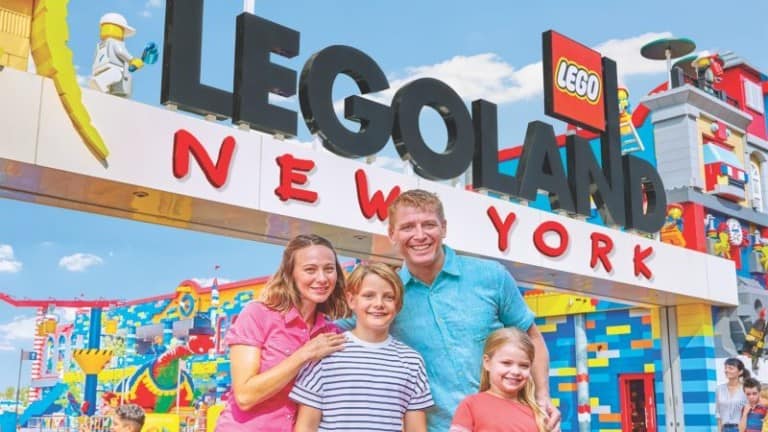Merlin Entertainments has released its annual accounts which include a statement about the impact of the coronavirus shutdowns on the Merlin Group’s ability to operate as a going concern.
The global attractions operator has stated in it’s annual report and accounts released on 24 April that: “There is material uncertainty on our ability to continue as a going concern.”
Cost cutting
Of Merlin’s 130 attractions worldwide, all but 9 are closed.
Moves have been made to conserve cash within the business including moves to cut operating costs by 45 per cent including:
- Furloughing around 80 per cent of staff, a freeze on recruitment and voluntary salary reductions.
- Marketing and advertising spend cut back almost entirely.
- Variable cost cutting measures including staff and rent.
The Group is seeking government support through the UK furlough scheme which will reimburse £10 million per month and UK business rate recovery of £2 million per month. Merlin is also “actively engaged” with landlords to seek deferrals or rent-free periods during closure.
Merlin is extending annual and season passes.
Capital expenditure review
Capital expenditure has been reviewed and reduced by 40 per cent to focus on “concluding current projects, essential maintenance and infrastructure work”. These cuts do not include LEGOLAND New York and LEGOLAND Korea which are considered separately.
The opening of LEGOLAND New York has been delayed to 2021, and currently there is no work being done on site. The total estimated spend required to finish the project is approximately £150 million, out of a total budget of approximately £340 million.
LEGOLAND Korea has a total budget of approximately £190 million, with spend to finish the project of approximately £160 million. There remain £24 million of the local government grants received to be utilised on the project’s next phase.
Ongoing cash outflows during lockdown
Following the cost cutting and cash conserving actions taken, Merlin’s average operational cash outflow (including non-deferred rent) will be approximately £50 million per month after interest, mandated debt amortisation, tax and capex on the Existing Estate. This assumes that attractions remain closed, but are kept ready to reopen in 2020, and breaks down as:
- operating costs including rent net of deferrals averaging £30 million per month;
- capital expenditure on the Existing Estate portfolio of £6 million per month;
- debt service payments at £12 million per month; and
- cash tax of £1 million per month.
Attractions remain largely closed but in a state of readiness to reopen during 2020,
Going concern
UK company financial statements are required to report on the basis of preparation of the accounts. Normally these will be prepared on a “going concern basis”, ie the company believes it will be trading for the foreseeable future and it can therefore include valuations and estimates on that basis. Auditors are required to assess and comment on this assumption. Usually, auditors will report something like this (from Merlin’s 2018 accounts): “there are no material uncertainties that could have cast significant doubt over their ability to continue as a going concern for at least a year from the date of approval of the financial statements (‘the going concern period’).”
Given the far-reaching impact of the COVID-19 pandemic, it is not surprising that Merlin’s 2019 accounts say that the coronavirus constitutes “a material uncertainty that may cast significant doubt on the Group and the Company’s ability to continue as a going concern”.
“a material uncertainty that may cast significant doubt on the Group and the Company’s ability to continue as a going concern”
The announcement and annual report explain that the uncertainty revolves around the unknown length of shutdown and consumer confidence and spending once attractions reopen:
“The effect of the global COVID-19 pandemic on our business and the wider attractions industry will ultimately depend on a number of factors, including, but not limited to, the duration and severity of the outbreak and the length of time it takes for demand and pricing to return and for normal economic and operating conditions to resume. There are no comparable recent events that provide us with guidance, and so we cannot currently estimate this with any certainty nor can we provide any assurance that COVID-19 will not continue to have a material adverse effect on our business, financial condition and results of operations.”
“nor can we provide any assurance that COVID-19 will not continue to have a material adverse effect on our business”
Long term financing
In November 2019, Merlin Entertainments was taken private by a consortium of the Danish family that founded Lego and Blackstone. This deal increased the company’s debts.
If Merlin’s attractions remain closed until mid-July, then the company has said that its current liquidity could be affected. However, Business Matters Magazine reports that a Merlin spokeswoman said that a recent €500 million bond sale “addresses the issues.”
In addition Merlin states that, “Our shareholders remain highly supportive of our business and optimistic about its longterm prospects.”
Other attractions operators detailing their responses to the coronavirus include SeaWorld and Cedar Fair.
